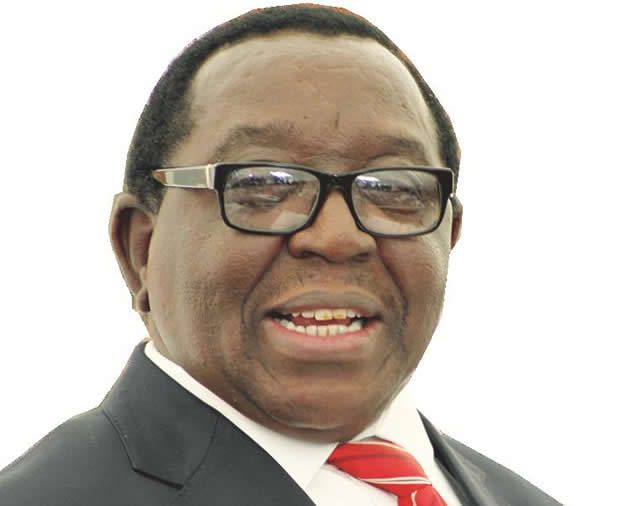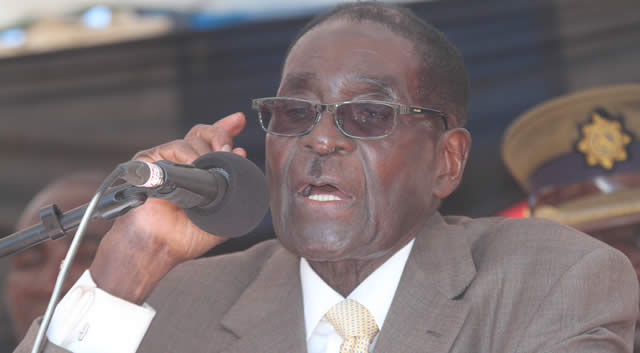CECIL SPARKS WORLD OUTRAGE . . . Hwange lion killers in court

-
Cat most famous in the world
 Leonard Ncube Victoria Falls Reporter
Leonard Ncube Victoria Falls Reporter
CLUTCHING a small brown bag, which appeared to have been made out of elephant skin, Theodro Bronkhorst was the face of anguish yesterday as he sat on a bench with his lawyer waiting to be called into a Hwange courtroom charged over the death of a lion.
Professional hunter Bronkhorst, 52, was acutely aware Cecil The Lion was not just another animal. Today, the lion — whose head sits somewhere in Bulawayo where it was being processed as a trophy — is the world’s most famous animal after dominating the front pages of British newspapers and international TV stations including CNN, BBC and Sky News.
Bronkhorst, prosecutors said at the Hwange Magistrates’ Court after lengthy delays, facilitated the animal’s slaughter, skinning and beheading even as he did not have a permit for killing a lion.
An American national, Walter Palmer, has been named as Cecil’s killer, it is alleged after he paid $50,000 to Bronkhorst and his associates, among them local farmer Honest Trymore Ndlovu, who is due before magistrates today charged with allowing an illegal hunt on his property.
Palmer was not in court yesterday after returning to Minnesota in the United States where he works as a dentist following the July 1 incident at Antoinette Extension Farm in the Gwayi Conservancy.
World attention was on the small courtroom in Hwange yesterday where the two men faced criminal charges over Cecil’s death.
The 13-year-old lion, distinguished by its unique black mane, was being tracked by Oxford University in England as part of a research since 1999.
Not that many Zimbabweans knew about Cecil. But they do today after the world’s media and celebrities united in anger over the lion’s killing. Six national British newspapers had Cecil — apparently named after the colonialism kingpin Cecil John Rhodes — on their front pages. Two described him as “Africa’s most famous lion”.
Tourism Minister Walter Mzembi has told of the lion’s tourist pulling power, and conservationists claimed foreign visitors paid $100,000 annually to see the big cat.
Bronkhorst, of Bernafay Lane in Bulawayo’s Riverside suburb, was not asked to plead when he briefly appeared before Hwange magistrate Lindiwe Maphosa facing a charge of failing to prevent an unlawful hunt.
The hunter, who owns Bushmen Safaris which facilitated the hunt, was freed on $1,000 bail as he was remanded to Wednesday next week for trial.
As part of his bail conditions, Bronkhorst will be reporting to Hillside Police Station three times a week on Mondays, Wednesdays and Fridays.
Magistrate Maphosa also ordered Bronkhorst to surrender his travel documents to the Clerk of Court in Hwange and to continue residing at his given address. He was also told not to interfere with state witnesses.
Prosecutors did not oppose bail for Bronkhorst, who was represented by lawyer Givemore Muvhiringi of Dube and Company.
Ndlovu, the owner of Antoinette Extention Farm, will appear in the same court today facing a separate charge of allowing an illegal hunt on his property. He is represented by Tonderai Mukuku of Marondedze, Mukuku and Partners.
Prosecuting, Namatirai Ngwasha said Bronkhorst, a holder of a hunting licence, failed to prevent an unlawful hunt by allowing Palmer to shoot and kill a lion which was not listed in his hunting quota.
“On July 1 at Antoinette and Antoinette Extension Farm in Gwayi Conservancy, Bronkhorst was supervising a hunt conducted by Walter James Palmer, an American. Palmer shot a male lion which was not in the list of a hunting permit PHL147,” said the prosecutor.
She said the 13-year-old lion, Cecil, had a collar which had a GPS tracker.
Palmer used a bow and arrow to shoot the lion which had been lured out of the protection of the Hwange National Park by the use of another’s animal’s carcass, which was used as a bait.
Prosecutors say Cecil’s killing came to light after Hwange Main Camp researchers noticed that the lion was stationary on the GPS.
“The researchers interviewed Cornelius Ncube, a scout, who told them that the lion had been shot by Palmer using a bow and arrow. Palmer was in the company of the accused,” said Ngwasha.
The lion was valued at $20,000 while the collar was worth $5,000. Prosecutors said the hunt was illegal because neither Ndlovu nor Bronkhorst had a lion hunting quota for 2015, although they could facilitate the killing of other animal species as listed in their quota.
Bronkhorst’s son, Zane, who was also allegedly part of the hunt, was not charged after his father told investigators that he was not involved.
Theodro Bronkhorst has since had his licence cancelled by the Zimbabwe Parks and Wildlife Management Authority.
Palmer, 55, who released a statement on Tuesday night from the United States, said he was not aware of Cecil’s protected status “until the end of the hunt”.
“I had no idea that the lion I took was a known, local favourite, was collared and part of a study until the end of the hunt. I relied on the expertise of my local professional guides to ensure a legal hunt,” he said.
According to US court records, Palmer pleaded guilty in 2008 to making false statements to the US Fish and Wildlife Service about a black bear he shot in Wisconsin. Palmer had a permit to hunt but shot the animal outside the authorised zone in 2006. He was fined $3,000.










Comments